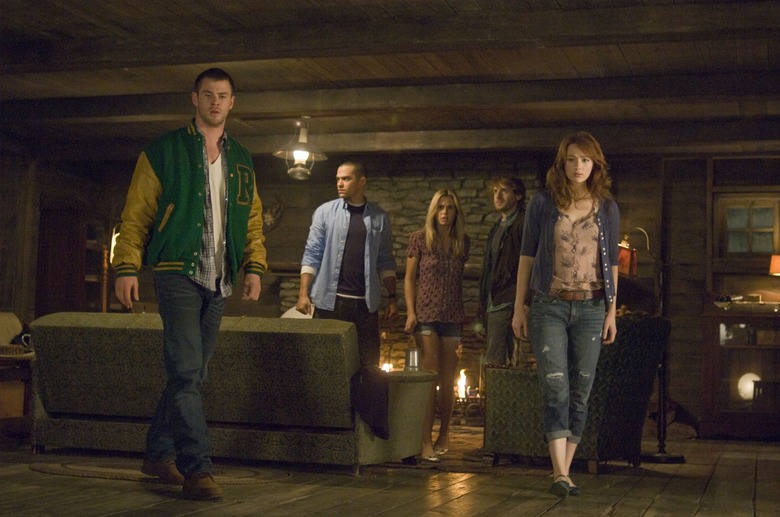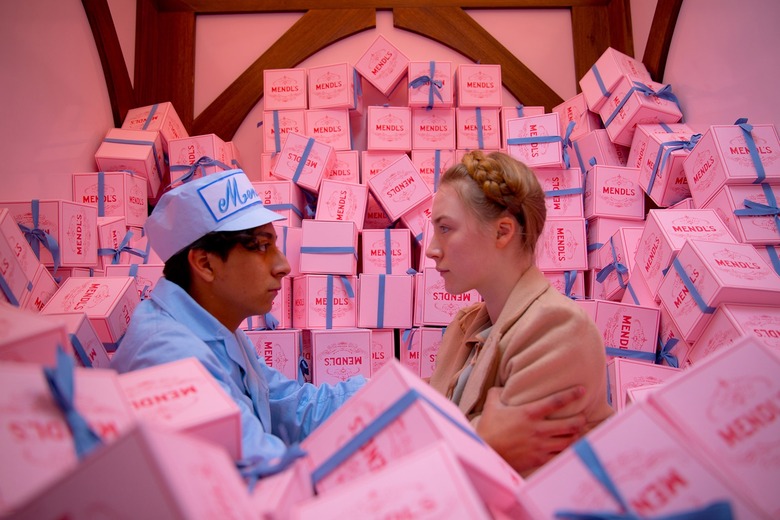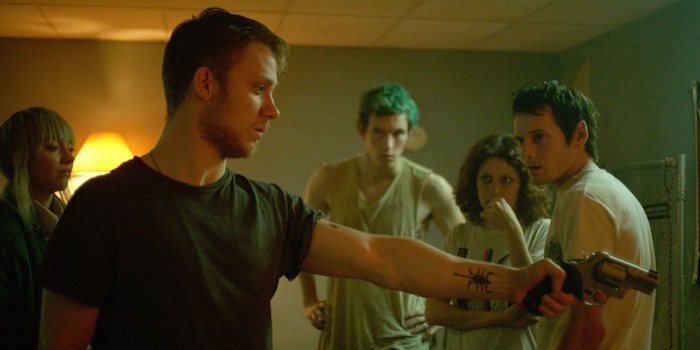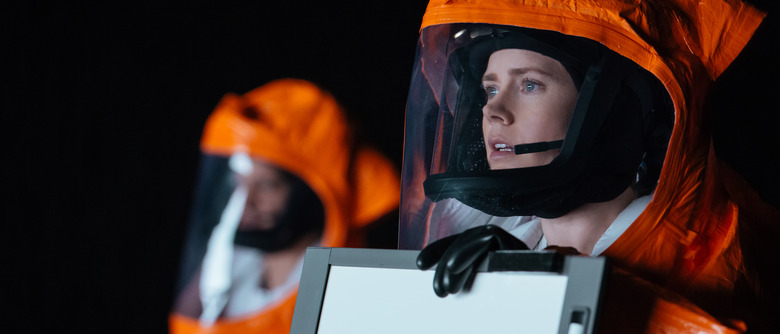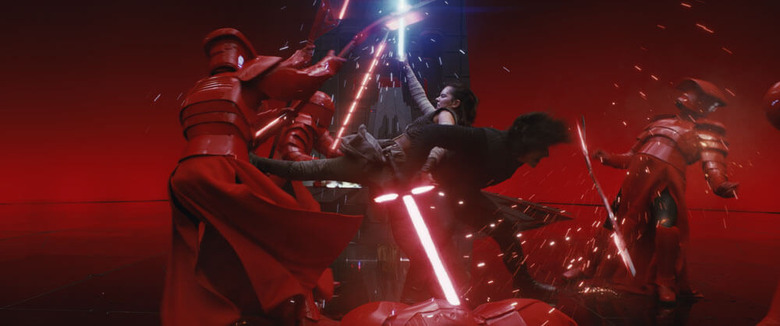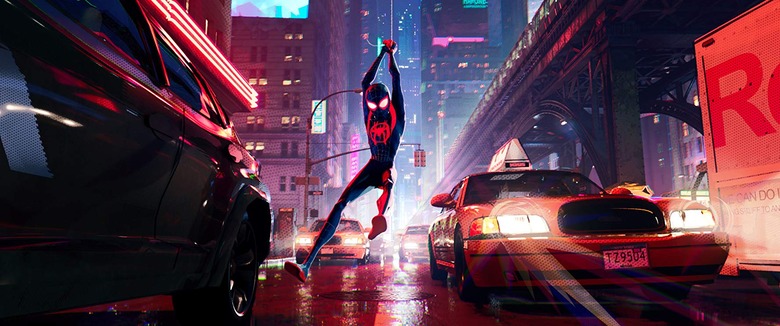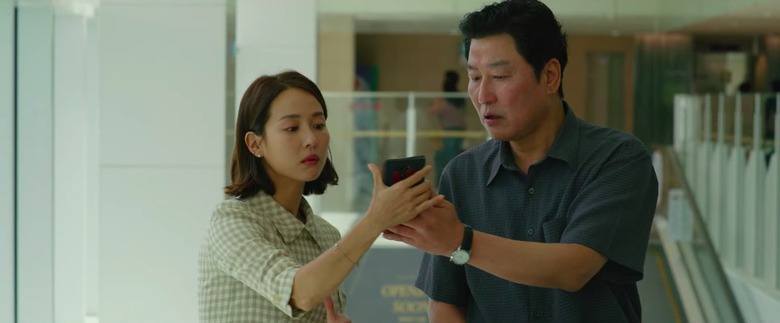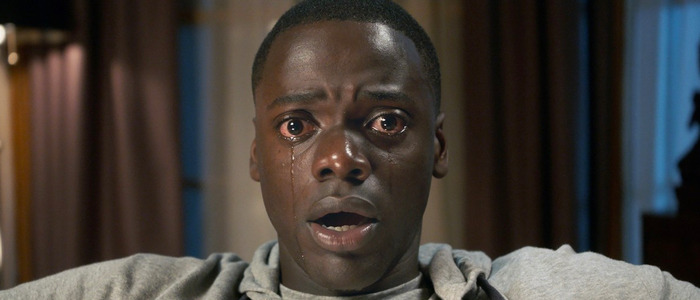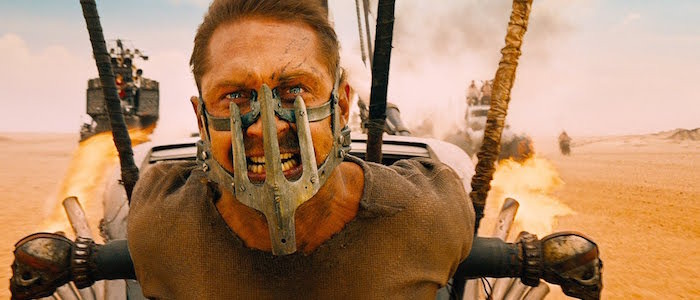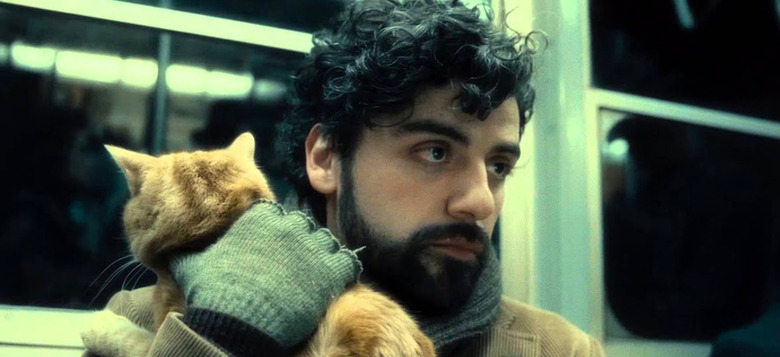Jacob Hall's Top 10 Movies Of The Decade
(This article is part of our Best of the Decade series.)
Look, most of these best of the decade articles start with a warning, saying something like "this list could have changed if I wrote it on another day." And that's fair. That's fine. I'm sure that's true for most folks. But not me. No, sir. These are my ten favorite films released between 2010 and 2019 and I feel awfully good about it. These ten films represent not just ten years in cinema, but ten years of my life and the movies that shaped me into my current self. My list is perfect. Sorry, but that's the truth.
10. The Cabin in the Woods
The beauty of The Cabin in the Woods is that there has never been a horror movie like it and, simultaneously, there have been hundreds of horror movies like it. Drew Goddard's infinitely clever debut film satirizes not just the horror genre, but the very nature of why we consume scary stories, relying on our shared cultural knowledge of storytelling to set up and pay off some of the grandest, silliest, and most shocking moments ever put on screen. The fact that you could write a thesis on the film's deconstruction and dissection of its targets doesn't stand in the way of what really makes The Cabin in the Woods sing: it's one of the best times you'll ever have watching a movie.
9. The Grand Budapest Hotel
The Grand Budapest Hotel is everything Wes Anderson has been striving toward since Bottle Rocket. That fastidious, detailed production design that invites you into a world that feels warm and homemade. That sprawling cast full of characters who you immediately understand with a single glance at their impeccable outfits. A camera that often keeps its distance, framing everything for maximum beauty and maximum comedy. But like Anderson's best work, that surface quirkiness masks a wounded heart, one that wants to absorb as much beauty as possible but opens itself up to pain in the process. We eventually learn that many of the key figures in this tale are doomed, overcome by forces they (and we) never saw coming because we had too much faith in society. We laugh to heal our wounds.
8. Green Room
We cannot have a discussion about the past decade in film without talking about Jeremy Saulnier. After making his name with the terrific Murder Party and the even better Blue Ruin, he delivered his first masterpiece with Green Room, a feel-bad thriller so unrelenting that it feels like a heart attack filmed at 24 frames a second. The startlingly prescient set-up – a group of desperate, ill-equipped young folks find themselves under siege by highly organized white supremacists – allows for a film that cuts straight to chase and means only business. It's fight for survival, one that pulls no punches and lingers on pain not because it's cruel, but because it's transportive. Saulnier asks you to feel every cut, every gunshot, every moment of physical contact. It's claustrophobic and it's terrifying and you spend most of it holding your breath.
7. Arrival
Arrival in a cinematic magic trick, one that uses our very knowledge of cinematic language against us. You think you're watching a brainy science fiction film about a scientist trying to communicate with alien visitors. And that's because you are. What you don't see coming, what's hidden within the filmmaking itself, are all of the building blocks being carefully assembled to strike down your emotional defenses. When it hits, and you know when it hits, it's devastating. Arrival is that rare science fiction film that works several organs, tickling the brain while tearing the heart right out of your chest.
6. Star Wars: The Last Jedi
Star Wars: The Last Jedi is not content to just deliver more expected notes in the world's most popular media franchise. Writer/director Rian Johnson approaches this monolithic production with the same mindset that he carried into Brick, Looper, and Knives Out: why do we love this thing in the first place? What makes it tick? And why does it matter? The result is a thrilling fantasy adventure the feels at one with the best of the series while carving its own path, asking fresh questions, and deconstructing the familiar in a manner both challenging and thrilling. There has never been a Star Wars movie like this and there probably won't be one like this again. The divisive response seems to ensure that. Still, all I can do is think about the final shot, the final message of the film, and remember what it's telling us – Star Wars isn't for you and it isn't for me. It's for everyone.
5. Spider-Man: Into the Spider-Verse
Spider-Man: Into the Spider-Verse isn't just the best superhero movie ever made – it's the only superhero movie to truly understand the pop art iconography of its world and to really lean into it. This is a visually dazzling film, one that translates two-dimensional comic book planes into three dimensions without losing the spark of a hand-drawn image. It's a cliche to say that every frame of a movie could be a painting, but here, it's true. Every moment from this film contains enough visual wit and razzle-dazzle to demand close study. But even if Into the Spider-Verse wasn't the most visually spectacular film of the decade, its masterful screenplay (so dense and yet so breezy!) and its incredible cast (Miles Morales is a movie hero for the ages) would propel it to the forefront of any conversation about the best movies in recent memory.
4. Parasite
If Alfred Hitchcock had a conscience, he would've made Bong Joon-ho movies. The South Korean master's best film begins as a pitch-black comedy of manners, the story of a lower-class family slowly taking over the home of a wealthy family through lies and subversion. And then...it becomes something else. A thriller about social inequality. A comedy about the victims of late capitalism. A tragedy about what families will do to protect their own. Parasite tiptoes between genres and tones with a grace rarely seen in any film, zigging when you expect it to zag but never sacrificing its humanity for its many, many twists.
3. Get Out
The most astonishing debut of the decade arrived when Jordan Peele left behind a career in comedy to direct a horror movie. The result is a masterpiece. Get Out is a crowd-pleasing good time at movies, a critical darling, an Oscar-winner (for Peele's screenplay), and a vicious, angry satire that attempts to exorcise the haunted soul of America itself. It's the kind of disarming experience that blindsides you – what did I just see and how did that get made and when can we get more movies like this?
2. Mad Max: Fury Road
We all know that film is a visual medium, but Mad Max: Fury Road proves that director George Miller knows that more intimately than the rest of us. The story here is intentionally threadbare: our heroes race across the desert wasteland, pursued by bad guys, and must eventually turn around and do it again. The beauty is what's left unsaid, as entire monologues are delivered with the flicker of an eye and motivations are explained with the turn of a steering wheel. It's no coincidence that the astonishing stunts recall the daring work of early silent filmmakers like Buster Keaton and Harold Lloyd – Miller is able to communicate so much with his camera, his actors so much with a glare, that you start to wonder why other movies need so much damn dialogue at all.
1. Inside Llewyn Davis
Inside Llewyn Davis is a masterpiece about the least-romantic and seemingly least-cinematic subject of them all: disappointment. The title character (Oscar Isaac, who will chase this performance for the rest of his career) is a folk musician struggling through a particularly rough week in 1960s New York City. The many wonderful musical numbers make it clear that he's a genuine talent, a performer with serious chops and something to say. He's also broke, opposed to even an ounce of compromise, a jerk to strangers, a scoundrel to friends, and unwilling to bend even slightly if it would mean making his life or the lives of those around him any easier. He's also stuck trying to take care of a cat. What the Coen brothers, somehow topping all of their other great films, suggest is that Llewyn is either a little too early or a little late, stuck in a limbo where success is always going to evade him. Fame is never going to find him, not because he doesn't have the chops, but because sometimes life deals you a bad hand. Inside Llewyn Davis does the impossible: it tells a tale of abject failure with humor and empathy, suggesting that sometimes things go wrong because that's just the universe, baby.

